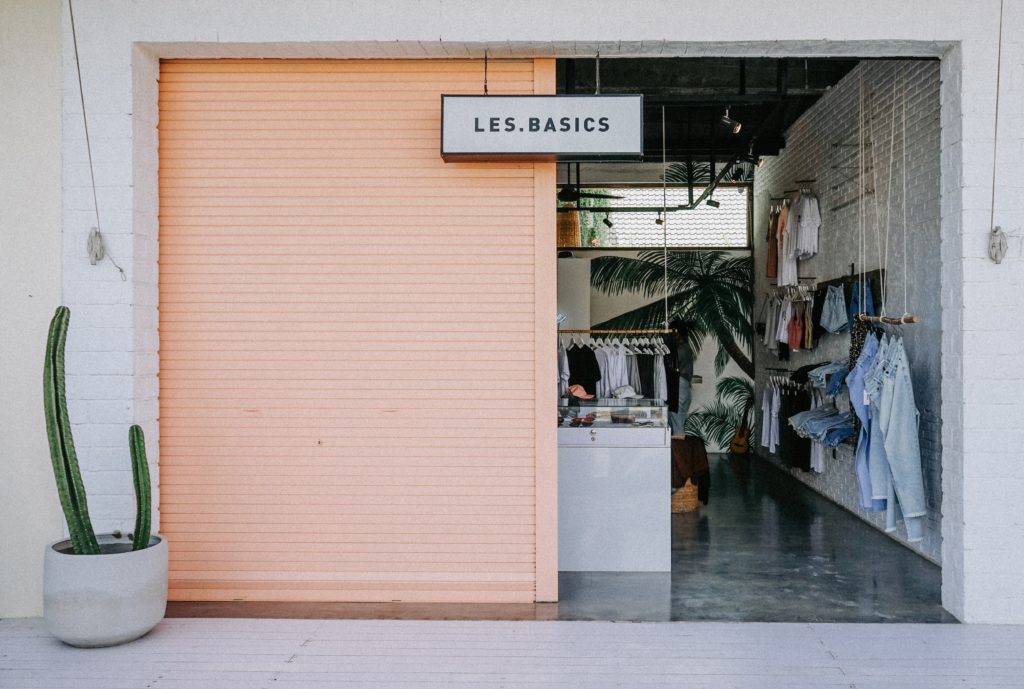A guide to how consumer behavior is shaping retail and ecommerce best practices
In today’s competitive retail environment, consumer experience can be the difference between success and failure. According to Dimension Data, “84% of organizations working to improve [customer experience] have experienced an increase in revenue.” So an investment in customer experience has real payoff when it comes to the bottom line. As a result of the changing landscape, we often hear the retail and ecommerce community asking questions like:- “How have consumer expectations changed?”
- “How can retailers rethink their physical retail spaces, and do they fulfill the expectations that their online brand projects to their consumers?”
- “As consumer expectations change, what technology can retailers harness to meet rising demands?”
PANEL QUESTION: How have consumer expectations changed?
Gordon Meyer, VP Marketing at Lampix and CommerceNext 2018 panelist, kicked off the panel explaining, “We moved from a rational experience to something that is irrational. Consumers expect their shopping experiences to be experiential and social.” Consumers now look for more than just a product to purchase — they want an entire buying experience, both in-store and online. A retailer can play into the desired irrational experience by creating a sensory environment that evokes emotion and supports the social and the digital. Meyer explains this idea using his experience at a Nike store. “The Nike shoes are on the shelf without any other information. How can I compare one shoe to the other? If I want to do that, I have to find somebody on the floor to answer a very basic question.” Meyer explains that consumers expect to have information when and where they want it and if it’s not easy to get to, there is frustration: “So as much as the Nike store is creating this environment that feels exciting, there is a lot of nuanced emotions that need to be addressed, like having information at my fingertips when I need it.” While it’s great if the in-store experience offers the right vibe and brand feel, it’s not good enough if it isn’t also as comprehensive and convenient as the online experience. If in-store falls short in either area, the consumer has no reason to come back and not just shop online. If retailers can work the mobile experience into the brick-and-mortar experience and bleed the digital information from their ecommerce websites into the product experience in the store, they have a complete sensory experience that satisfies all areas of the brain.
PANEL QUESTION: How can retailers rethink their retail spaces? Does it fulfill the expectations that their online brand projects to their consumers?
Physical retail isn’t dead—it still represents the bulk of retail sales—it just needs to be reimagined as more and more sales move online. Consumers still want to visit brick-and-mortar stores, but instead of going in to buy products, they go to have a sensory experience. Panelist Anu Duggal, Founder of Female Founders Fund, uses the brand Winky Lux as an example:“The brand mostly sells online and via larger beauty brands, but they also launched a series of Instagram-friendly pop-up stores. Consumers want to visit the pop-up to experience the Winky Lux lifestyle, something that the founder has been able to portray expertly on social media.”The store charged an admission fee, then credited towards purchases. The expectations weren’t for consumers to purchase their products from the pop-up shop, but to purchase them later online. The multiplying effects of owning retail space can increase social awareness and eventually translate into sales.
PANEL QUESTION: As consumer expectations change, what technology can retailers harness to meet rising demands?
Consumers expect things to move at a fast pace, thanks to ecommerce. As a result, infrastructure and supply chain management are big topics for retailers. Retailers need to know where inventory lives and need strong domestic (and sometimes international) fulfillment infrastructure to achieve competitive shipping rates without destroying margins. This meant an in-depth evaluation of supply chain management for many retailers and brands in 2018. Jamison Hill, Principal at Bain Capital, explains that if Amazon retailers want to meet consumer expectations for two-day shipping, they need to know where their inventory is and they have to possess the fulfillment infrastructure across the country to be able to send packages at competitive shipping rates to their customers without destroying all of their margins. Bain Capital recently made two investments in supply chain technology companies, Fortnite and Shipbot. Hill explains that Fortnite is a supply chain visibility platform that gives major retailers the ability to understand where their freight is, be it over the ocean, road or rail, to help power better inventory management and better visibility. Shipbot is a company that is building modern fulfillment infrastructure in urban centers so non-Amazon retailers using ground shipping have the power to fulfill orders in Brooklyn and LA, both within two days. Watch our expert panel discuss “Shifting Consumer Behaviors Shaping Retail”:PANEL QUESTION: Is there a new type of operations person that retailers can bring on board to improve their business based on these conclusions?
Retailers should develop a well-rounded team that can support evolving consumer behavior. This used to involve hiring an excellent staff of salespeople who work on the floor. Today, retailers focus on building an excellent behind-the-scenes staff.
In-demand team members include those with digital marketing and ecommerce backgrounds for strategy development, as well as supply chain experts who bring the infrastructure needed to support unique and complex buying channels.
Beth Ferreira, Managing Director at FirstMark Capital, explains that data scientists are other organizational members in high demand with retailers and brands: “Deloitte had a report a few months ago that said all retailers are looking to more than double the number of their data scientists.”
Although many retailers are aware their information goldmine, they don’t always have ready access to it. Technology solutions like Optimove are making it easier than ever to utilize data quickly and effectively to make better decisions. Optimove is an AI-driven software that gives retailers the ability to understand and segment their customers and personalize communications to create more powerful relationships with their customers.

PANEL QUESTION: How can retailers create an experience that matches consumer expectations?
Growing with consumer expectations is what will help you successfully create an experience that matches the consumers evolving demands. To achieve those goals, rethink how you manage your retail space, your supply chain infrastructure and technology, and your business’ team to align with the changes consumer behavior experts are noticing today.
Are you interested in learning what companies are noticing about consumer behavior in 2019? Join us for the CommerceNext marketing conference on July 31st & August 1st of 2019! Apply to attend here.
Related Posts
-
Customer Experience and Community as the Ultimate Marketing Tool
If you spend time online, you’ve undoubtedly heard of cult-favorite…
-
How Walmart Adapts Customer Experience for the Digital Shopper
Walmart.com is anything but basic. The retailer is perhaps best…
-
Connecting Cause Marketing with Brand Mission for Good
Consumers are looking for a cause. Sixty-four percent of consumers…




